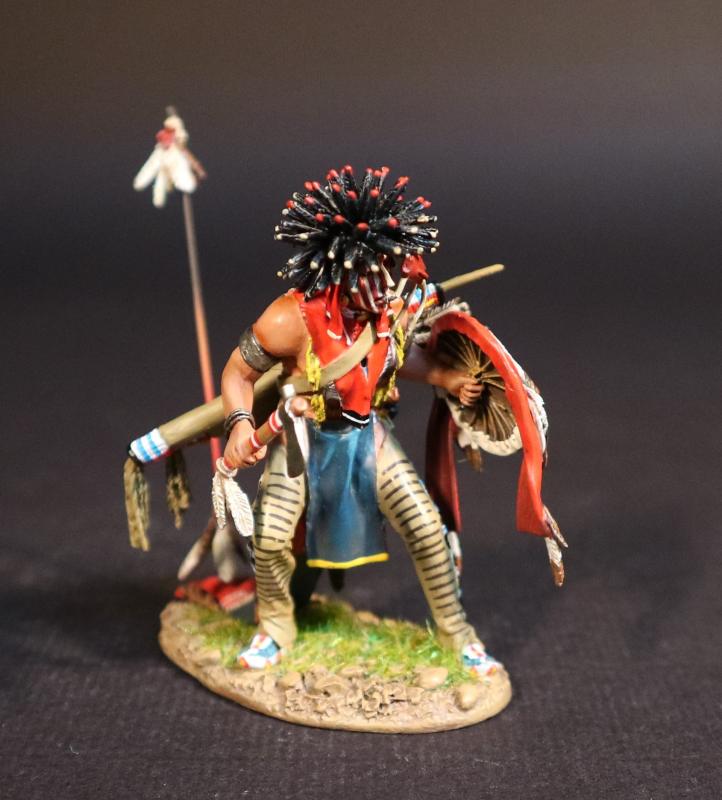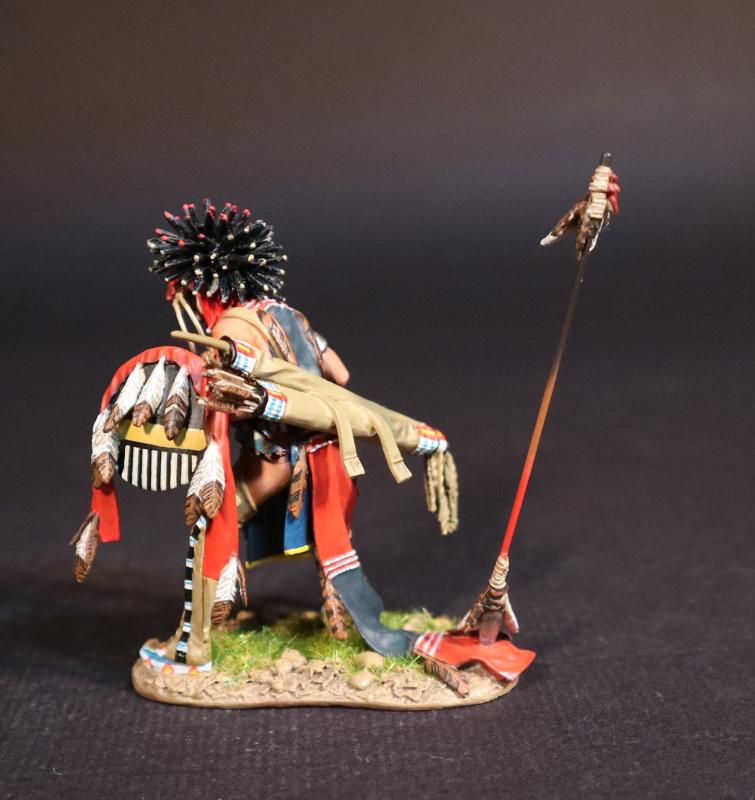Cheyenne Dog Soldier, The Battle Where the Girl Saved Her Brother, 17th June 1876, The Black Hill Wars, 1876-1877, Thunder on the Plains--single mounted figure
$58.00
Item Number: SSB-21
Cheyenne Dog Soldier, The Battle Where the Girl Saved Her Brother, 17th June 1876, The Black Hill Wars, 1876-1877, Thunder on the Plains--single mounted figure
Warrior Societies were an important aspect of the Plains life, which divided a tribe’s fighting men into distinct units which provided their members with a social club, and an organization in which they could progress through ranks of officership to bring great prestige.
The Dog Men Society, was the largest society among the Cheyenne.
It was made up of males fifteen years and older, and is believed to have contained at least half the men of the entire Cheyenne tribe.
The four bravest Dog Men were chosen to defend the society and the tribe from the raids of the enemy in a particular way for year’s long term.
Each of these chosen men wore a sash of tanned skin eight to ten feet long, which were called “dog strings” or “Dog ropes”.
Whenever a battle was going badly for the Cheyennes, those who had been selected to wear the dog ropes for that year drove their lance into the ground through the end of the sash.They remained attached there, to fight desperately to cover the retreat of all the other warriors. It was expected they would die rather than pull the lance up and retreat.
Among the Cheyenne it was accepted that if a comrade sharply ordered them away, as if they were speaking to a dog, they were free to retreat with the others.
At the end of the year’s term, the sash wearers still surviving gladly relinquished the emblems to four other members newly chosen for the position, and if one had been killed and the dog string lost, his widow prepared a new one for his successor.
All the warriors of the Dog Society dressed alike. The usual style of headdress consisted of a cap with a narrow beaded band along the front edge.
The crown was entirely covered with the tail feathers of the golden eagle, raven, the hawk or the crow. They were fastened in a way which made them stand erect all over the headdress. A whistle made from the wing bone of an eagle was suspended by a string from the neck of each warrior.
Released in SEPTEMBER 2024.

